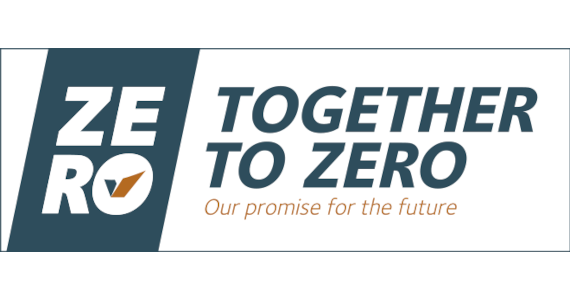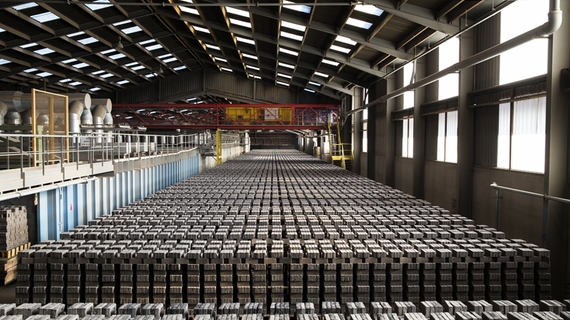
Dematerialisation
We’ve been firing bricks in standard sizes for walls and paving for 90 years. Bricks with traditional sizes tend to be chosen for aesthetic reasons, but there are no technical or practical advantages to using 10-cm thick facing bricks. In light of this, we’ve been focusing on making our production process more sustainable in recent years.
Fewer raw materials, lower energy consumption
To make our production process more sustainable, we’re making ECO brick slips which require fewer raw materials and less energy consumption. In addition, we’re using less packaging material, thanks to initiatives such as a pallet return service and using thinner, partially recycled, film. We recently received the Ufemat Best Practice Award for our efforts. The step towards dematerialisation is part of Together to Zero: our promise to be fully CO2-neutral by 2050.
Sustainable ECO brick slips
The production of our ECO brick slips requires 50% less energy and 70% fewer raw materials. They are formed directly in special moulds and fired as a strip. They are not sawn from whole bricks, so there’s no waste and no material is lost. Traditional bricklaying techniques are unnecessary; the strips are glued directly to support, making them the ideal finish for insulating wall systems such as E-Board®, as well as difficult constructions such as ceilings, corbelling or creative masonry patterns.

Together to Zero
Together to Zero is our promise to be carbon-free in our operations and production by 2050. Together with our partners, we’re making this happen in several areas, reflected in eight domains. Dematerialisation is one of these domains: we use as few raw materials as possible in the production of our facing bricks and pavers. This lowers our energy consumption and significantly reduces our CO2 footprint.


